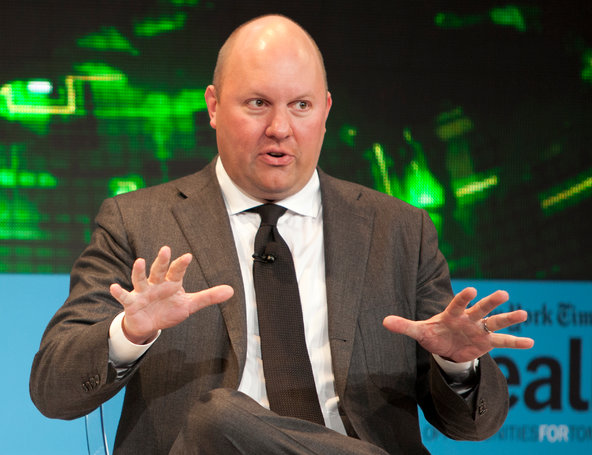What are the risks when an ICO like Tezos (or EOS) raises TOO much? Marc Andreessen's Wisdom
ico·@eeks·
0.000 HBDWhat are the risks when an ICO like Tezos (or EOS) raises TOO much? Marc Andreessen's Wisdom
I coined term "scope drunk" in response to [Tezos's roadmap](https://www.tezos.com/static/papers/Tezos_Overview.pdf) and their plans for when they raise hundreds of millions of dollars. Those plans stretch far beyond their core competency of software development into geopolitics, banking, and massive empire building. They want enough money to do those things before they even have a product that people are actually using or care about. Premature and reckless. Marc Andreessen, one of a handful of VCs who can legitimately be called "legendary," shared concrete reasons why raising too much money too early can be dangerous in his article [Guide to Startups Part 6: How much funding is too little? Too much?](http://pmarchive.com/guide_to_startups_part6.html). I excerpt the meat of his points, all of which are very applicable to Tezos but also to other ICOs that are raising too much money, especially the ones that have decided to raise money on an "uncapped" basis in an environment of frothy FOMO. I would caution people to be wary of uncapped ICOs for these reasons and additinally for what making the decision to raise as much money as possible and pay themselves upfront (personal risk management) says about the character of management AND the future incentives of management. > There are downside consequences to raising too much money...The big downside consequence to too much money, though, is cultural corrosion. > You don't have to be in this industry very long before you run into the startup that has raised a ton of money and has become infected with a culture of complacency, laziness, and arrogance. > Raising a ton of money feels really good -- you feel like you've done something, that you've accomplished something, that you're successful when a lot of other people weren't. > And of course, none of those things are true. > Raising money is never an accomplishment in and of itself -- it just raises the stakes for all the hard work you would have had to do anyway: actually building your business. > Some signs of cultural corrosion caused by raising too much money: > Hiring too many people -- slows everything down and makes it much harder for you to react and change. You are almost certainly setting yourself up for layoffs in the future, even if you are successful, because you probably won't accurately allocate the hiring among functions for what you will really need as your business grows. > Lazy management culture -- it is easy for a management culture to get set where the manager's job is simply to hire people, and then every other aspect of management suffers, with potentially disastrous long-term consequences to morale and effectiveness. > Engineering team bloat -- another side effect of hiring too many people; it's very easy for engineering teams to get too large, and it happens very fast. And then the "Mythical Man Month" effect kicks in and everything slows to a crawl, your best people get frustrated and quit, and you're in huge trouble. Note that Tezos intends to hire a huge organization and build an empire if they raise a lot of monery per the [Tezos roadmap](https://www.tezos.com/static/papers/Tezos_Overview.pdf). They have no experience managing a large company and will have as much as a $1bn budget, Day 1. <center></center> > Lack of focus on product and customers -- it's a lot easier to not be completely obsessed with your product and your customers when you have a lot of money in the bank and don't have to worry about your doors closing imminently. > Too many salespeople too soon -- out selling a product that isn't quite ready yet, hasn't yet achieved Product/Market Fit -- alienating early adopters and making it much harder to go back when the product does get right. > Product schedule slippage -- what's the urgency? We have all this cash! Creating a golden opportunity for a smaller, scrappier startup to come along and kick your rear.
👍 eeks, ponnibong, abudar, saithe, seymourbucks, anritco, isteemit, swaraj, sergey44, rival, cryptodata, jupiter5, knircky, jondahl, ubg, gikitiki, akaninyene-etuk, daniham, teamsteem, sandra, jason, melowd, berkah, steem-id, awesomianist, gohba.handcrafts, pnc, lamech-m, zacharyscottrose, beordo, turboman, ariafliandi, zerometal, protegeaa, wrekem, daadog, sassal, won1541, mikemiziner, kennyrowe, hedge-x, busser, jknogh, waza, kyle.anderson, markjackson1989, dx7200, headliner, isacoin, namiks, etcbits, katythompson, beyondthecrypto, sircarlo, coocoocachoo, manish2303, kingscrown, ihashfury, rossco99, boatymcboatface, theshell, mikehere, allyouneedtoknow, writingamigo, fatamorgan, libbresse, ambaekure, aarkay, cryptogee17, lawrenceho84, walterjay, ssd213, giannisaid, wmougayar,